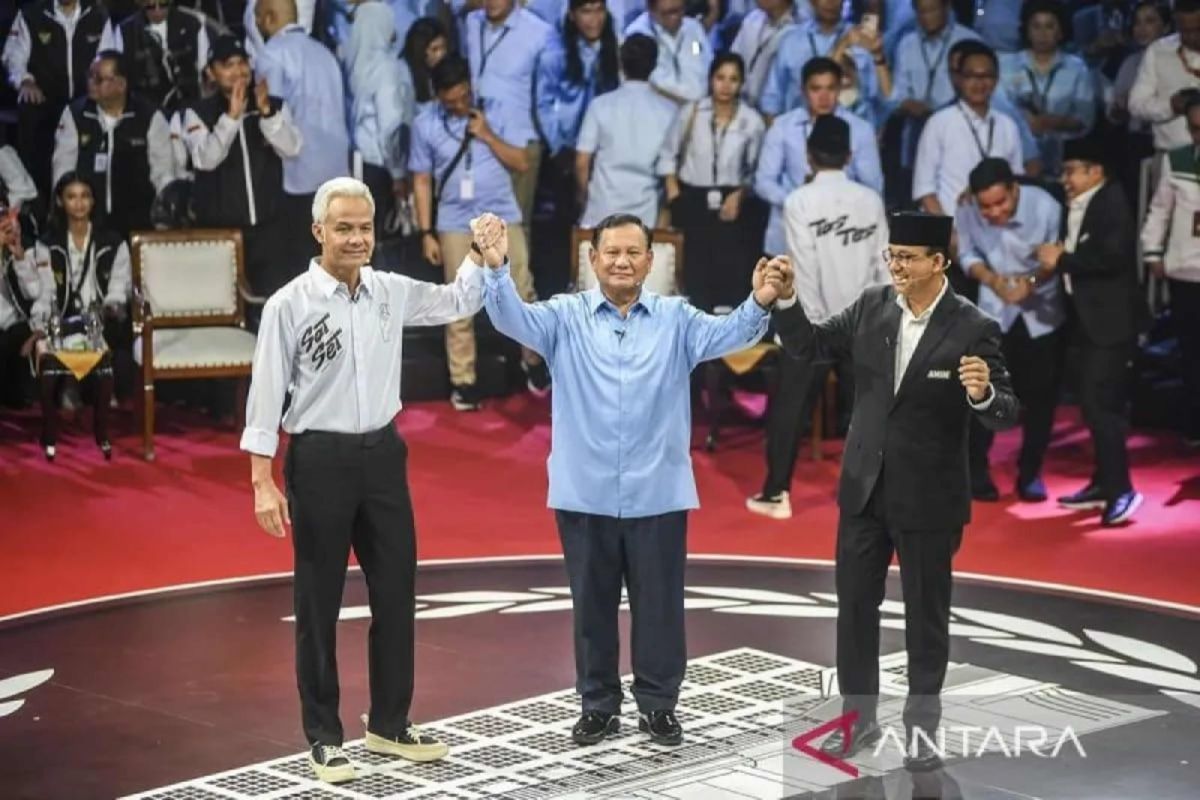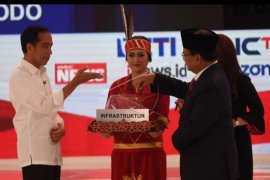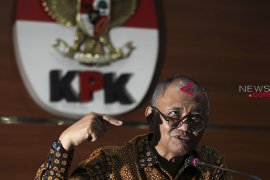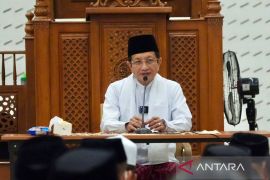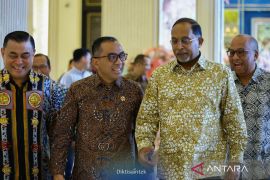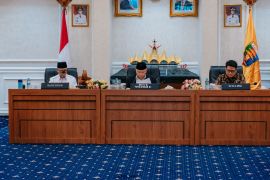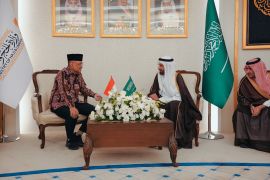The second debate of Anies Baswedan, Prabowo Subianto, and Ganjar Pranowo is taking place as the international community witnesses the ugliness of war and rising geopolitical tensions in several parts of the world.
The ongoing war in Ukraine and Palestine, for instance, will undoubtedly continue to adversely impact global security and economic stability.
The war in Ukraine has affected global supply chains leading to the rise of global commodity prices while Israel's continuing genocide in Gaza has also increased tensions in the Middle East.
The Israeli brutality has even sparked fears of a wider conflict in the region. This has already been seen with the blockade of Israeli commercial shipping in the Red Sea by the Iran backed Houthi faction in Yemen which triggered a US led international response.
According to defense analyst Muhammad Teguh Ariffaiz Nasution who is currently pursuing postgraduate degree at the Australian National University's (ANU's) Strategic Studies, any escalation of the conflict in the region will pose direct and indirect challenges to Indonesia's security and prosperity.
Closer to home, Indonesia's immediate geostrategic environment is increasingly dominated by intense rivalry between China and the US, including over key regional flashpoints in Taiwan and the South China Sea.
By taking this regional and global security dynamics into account, the pairs of Indonesian presidential and vice presidential candidates have presented their grand design for the development of Indonesian defense.
Teguh Nasution observes that the grand design includes some interesting ideas such as a blue water navy and anti-access/area denial (A2/AD)-based defense strategy.
Therefore, Anies, Prabowo, and Ganjar need to outline how their grand design on defense will be relevant to tackle the potential geostrategic challenges Indonesia will face regionally and globally.
Related news: Spirit of national defense key to strong, united Indonesia: Official
Blue water navy
As depicted in the presidential and vice presidential pairs' vision and mission, Anies proposed an ambitious program of developing the Indonesian navy (TNI AL) into a blue water navy.
This is a valid idea and not without legal basis as Article 11 of the Presidential Regulation No.8/2021 on the 2020-2024 General Policies on National Defense outlines that TNI deployment should be forward deployed in line with the direction of national development, Teguh Nasution argued.
In this regard, the idea of forward deployment of forces has been embedded in the Joko Widodo (Jokowi)-Ma'ruf Amin administration.
Following this, he suggested that it would be interesting to see in the debate how Anies will envision his idea of a forward deployed TNI supported by a blue water navy.
Another question that needs to be asked is "what kind of blue water navy is Anies envisioning to build?"
After all, blue water navies come in different ranks with rank 1 being the US Navy which possesses global power projection capabilities, while rank 2-4 like the French, United Kingdom, Russian, Japanese and Chinese navies possessing limited global power projection, or more regional power projection capabilities.
Another question will be in terms of budget. Building a blue water navy takes a lot of money. With Indonesia's defense budget allocation consistently under the ideal amount, how feasible would Anies' dream of a blue water navy in reality be?
Current strengthening
Meanwhile, regarding Prabowo Subianto's defense-related vision, Teguh Nasution said Prabowo stresses his commitment to continuing the current strengthening of Indonesia's defense capability.
Prabowo would do that through increasing defense expenditure, upgrading the capacity of national defense industries, as well as implementing a successor to the current minimum essential forces program (MEF) called the optimum essential forces.
In general, these are good programs and highlights the continuity aspect from the current defense modernization program under Jokowi. As the defense minister, Prabowo possesses an advantage for the upcoming debate against his two rivals in terms of having a direct track record in pushing for the modernization of Indonesia's defense, Nasution said.
Apart from the fact that nobody is perfect, Prabowo has achieved notable success such as overseeing the creation of a reserve component of TNI, as well as pushing for the acquisition of modern weapon systems such as Rafale fighter jet from France, and AH 140 frigates from the UK, he said.
On the other hand, while Prabowo has consistently pushed for the modernization of TNI throughout his ministerial term, some weapons acquisition programs such as the planned purchase of 2nd hand Mirage 2000-5 fighter jets from Qatar are not without criticism and raises questions over transparency of defense acquisition, he said.
Related news: Expect submarine procurement in 2024: naval chief
A2/AD-based defense strategy
How about Ganjar's grand design for defense? He argued that Ganjar's grand design prioritized the development of an Anti-Access/Area Denial (A2/AD)-based defense strategy.
This will be supported by the creation of an effective command and control system as well the possession of signature capabilities such as cruise missiles.
Ganjar proposes a well-founded idea for the direction of Indonesia's defense modernization particularly in light of the future challenges the country may face in the region.
"An A2/AD strategy is a logical choice for countries that wish to prevent or dissuade other usually stronger countries from intruding into their territory of strategic space," Teguh Nasution argued.
For Indonesia's case, an A2/AD based strategy may prove to be useful in preventing or dissuading possible spillovers in a Taiwan war scenario involving China and the United States.
In terms of the defense industry, Ganjar proposes an ambitious plan of pursuing self-sufficiency in terms of weapons production within a decade.
While strengthening the national defense industry is a laudable plan and must be pursued by all candidates, Ganjar's plan of achieving self sufficiency in just ten years may be far from feasible.
Currently, only the US, Russia and China can claim to have a self-sufficient defense industry, with other countries only having partial self-sufficiency, being highly reliant on global supply chains for weapons production, he said.
Aside from that, a ten-year time frame for achieving self sufficiency is highly unrealistic as the experience of emerging global defense manufacturers, like Turkey and South Korea, shows that building a national defense industry takes decades of planning and commitment, Nasution argued.
Related news: Indonesian Navy adds indigenously built patrol ship to its fleet
Editor: Tia Mutiasari
Copyright © ANTARA 2023
